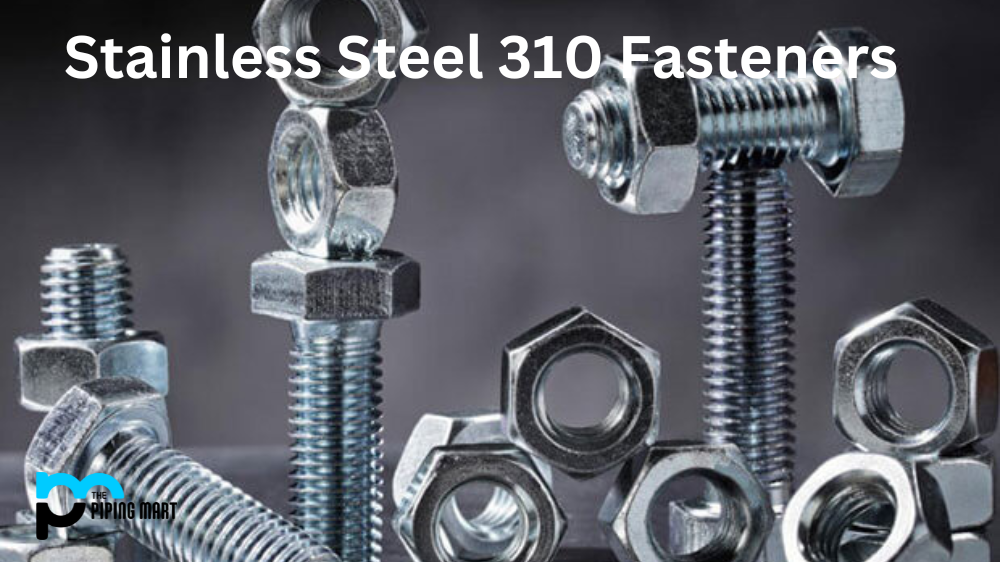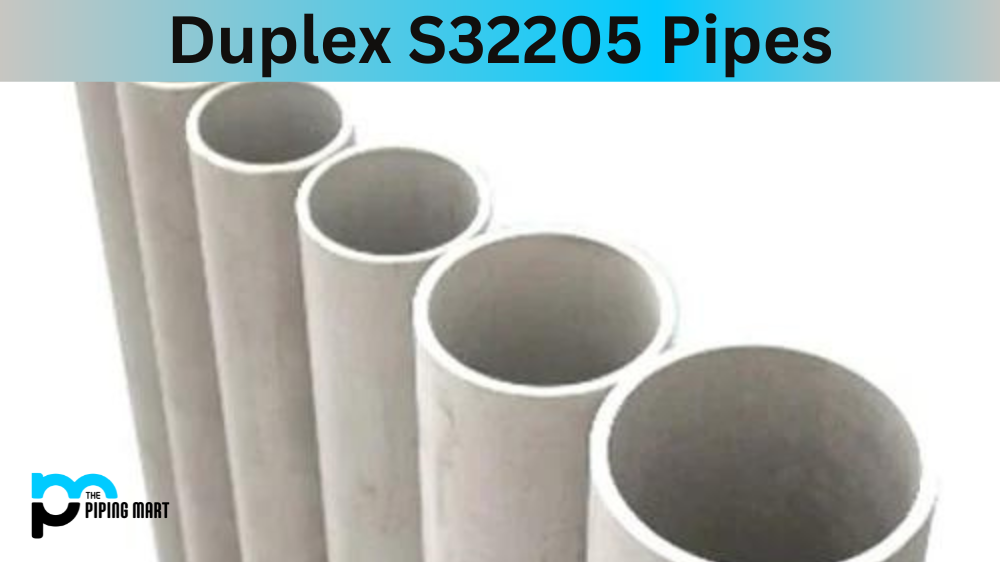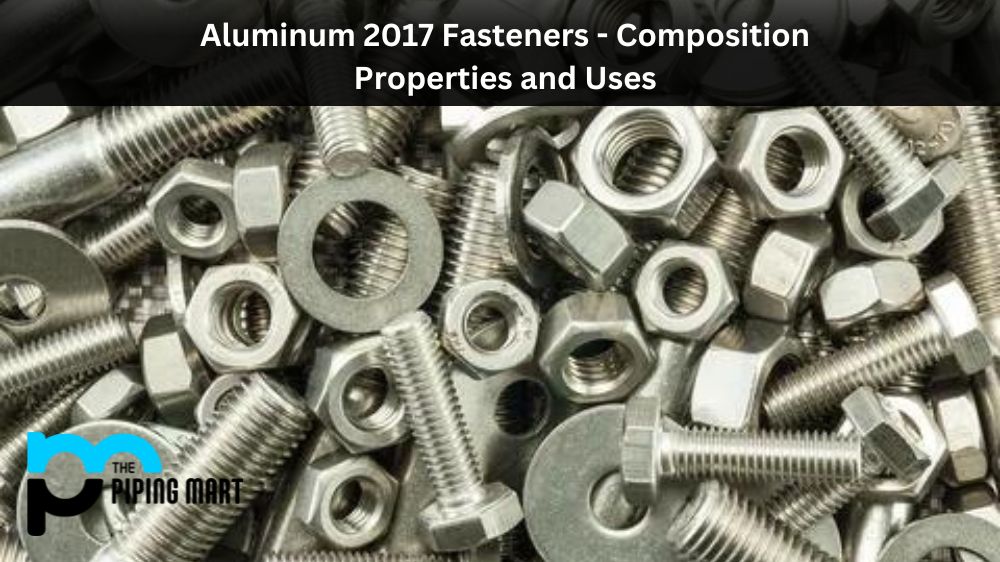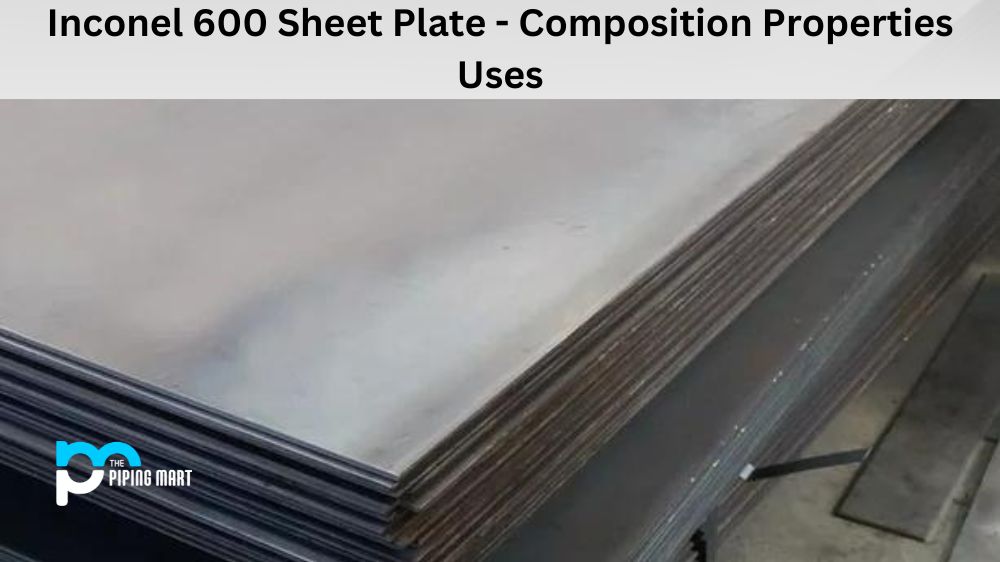SS 310 is popular for its excellent resistance to elevated temperatures and exceptional mechanical properties. As such, 310 Stainless Steel Fasteners have become a favorites among engineers and designers in various industries. These fasteners can withstand extreme conditions and are perfect for high-strength and corrosion-resistance applications. This comprehensive guide will explore the composition, physical and mechanical properties, uses, heat treatment, and corrosion resistance of Stainless Steel 310 Fasteners.
What are Stainless Steel 310 Fasteners?
UNS S31000 fasteners are a fastener made from an alloy comprising chromium, nickel, and iron base. 310 ss fasteners offer excellent strength and resistance to elevated temperature environments, making them ideal for high-temperature applications such as boilers, heat exchangers, furnace parts and other elevated temperature services. Alloy 310 Fasteners superior corrosion resistance allows for longer service life in highly corrosive environments.
UNS S31000 Fasteners Composition:
310 Stainless Steel Screws is composed of 25% chromium, 20% nickel, and 0.25% carbon. These elements give 1.4307 Fasteners exceptional corrosion resistance, high-temperature strength, and ductility. The addition of manganese and silicon provides further stability to the 310 Stainless Steel Hex Nuts. The high chromium content also helps form a stable oxide layer that protects the metal from corrosion.
|
Grade
|
C
|
Mn
|
Si
|
P
|
S
|
Cr
|
Mo
|
Ni
|
N
|
|
|
310
|
min.
|
–
|
–
|
–
|
–
|
–
|
24.0
|
–
|
19.0
|
–
|
|
max.
|
0.25
|
2.0
|
1.50
|
0.045
|
0.030
|
26.0
|
22.0
|
–
|
||
310 SS Fasteners Physical Properties:
1.4307 Fasteners have a 7.9 g/cm³ density, making it one of the densest metals used in construction and manufacturing. It has a melting point of 1398-1454 °C and a boiling point of 2500 °C. SS310 Fasteners are also non-magnetic and have a specific heat capacity of 500 J/kgK.
|
Grade
|
Density (kg/m3)
|
Elastic Modulus (GPa)
|
Mean Coefficient of Thermal Expansion (m/m/°C)
|
Thermal Conductivity (W/m.K)
|
Specific Heat 0-100°C (J/kg.K)
|
Electrical Resistivity
(n.m)
|
|||
|---|---|---|---|---|---|---|---|---|---|
|
0-100°C
|
0-315°C
|
0-538°C
|
at 100°C
|
at 500°C
|
|||||
|
310
|
8000
|
193
|
17.2
|
17.8
|
18.4
|
16.2
|
21.5
|
500
|
720
|
Alloy 310 Fasteners Mechanical Properties:
ASTM A193 Fasteners have impressive mechanical properties, making 310 Stainless Steel Bolts ideal for high-strength and durability applications. SS UNS S31000 Socket Set Screw yield strength is 250 MPa, and tensile strength is 620 MPa. The elongation at break is 40%, making it highly ductile. Stainless Steel 310 Fasteners also exhibit excellent fatigue resistance and can withstand vibrations and shock.
|
Grade
|
Tensile Strength (MPa) min
|
Yield Strength 0.2% Proof (MPa) min
|
Elongation (% in 50mm) min
|
Hardness
|
|
|
Rockwell B (HR B) max
|
Brine-ll (HB) max
|
||||
|
310
|
515
|
205
|
40
|
95
|
217
|
310 Stainless Steel Fasteners Equivalent Grade
|
Grade
|
UNS No
|
Old British
|
Euronorm
|
Swedish SS
|
Japanese JIS
|
||
|
BS
|
En
|
No
|
Name
|
||||
|
310
|
S31000
|
–
|
–
|
1.4841
|
–
|
–
|
SUS 310
|
1.4307 Fasteners Uses:
Due to UNS S31000 Hex Nuts excellent heat and corrosion resistance, SS 310 Fasteners have applications in various industries. They are used to construct heat exchangers, furnaces, boilers, pipelines, and chemical processing equipment. Alloy 310 Hex Bolt are also used in the food and beverage, pharmaceutical, and oil and gas industries.
ASTM A193 Fasteners Heat Treatment:
1.4307 fasteners are annealed at temperatures between 1040°C and 1150°C to improve their workability and ductility. Additionally, 1.4307 Bolt & Nut can be hardened by cold working or heat treatment. However, 310 SS Hex Nuts should not be forged below 1100°C; if it is, it must be followed by annealing to prevent cracking.
ASME A193, 194 Fasteners Corrosion Resistance:
UNS S31000 fasteners have excellent resistance to corrosion and oxidation in high-temperature environments. The chromium content in the Alloy 310 Hex Bolt forms a protective oxide layer that prevents the metal from rusting or corroding. 310 Stainless Steel Fasteners are also resistant to sulfidation and carburization, making them ideal for use in harsh chemical environments.
Conclusion:
Stainless Steel 310 Fasteners are a popular and versatile choice that offers exceptional resistance to elevated temperatures and corrosion. Understanding the composition, physical and mechanical properties, uses, heat treatment and corrosion resistance of ASME A193, 194 Fasteners is essential in choosing the right fasteners for your specific application. With remarkable mechanical properties, heat resistance, and corrosion resistance, Stainless Steel 310 Fasteners are the perfect choice for high-performance and durable applications.

Meet Bhavesh, a seasoned blogger with a wealth of knowledge and experience. From metal products manufacturing to retail, Bhavesh has a diverse background in various industries and is dedicated to sharing his insights and expertise with readers.




